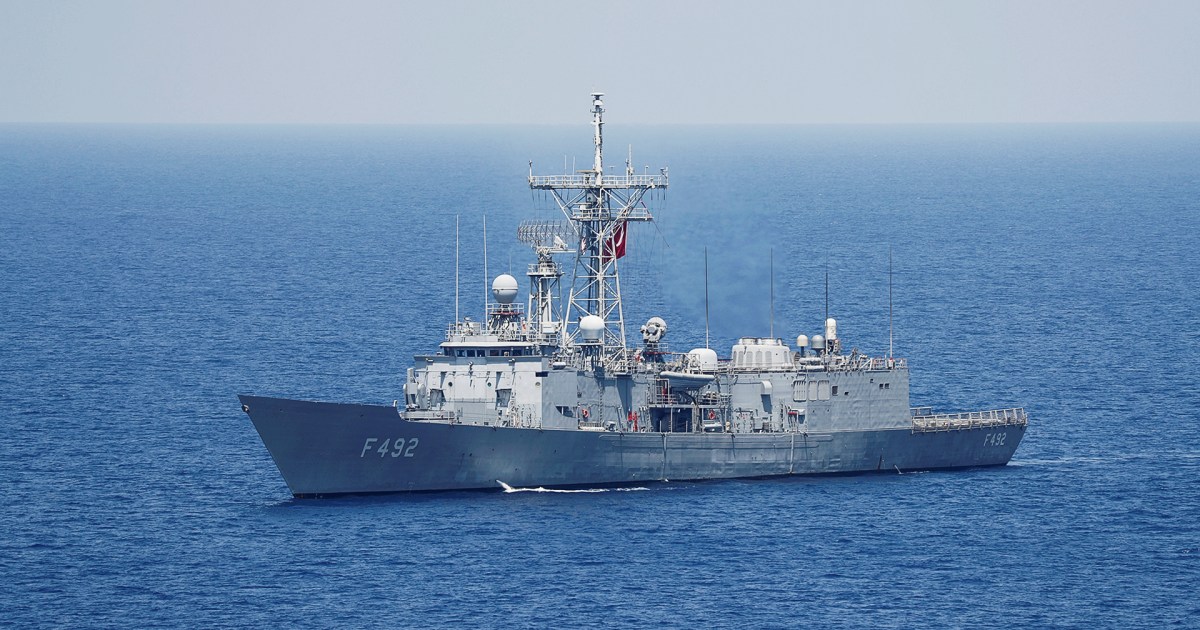Yesterday evening, the Greek Foreign Ministry said that there are no scheduled talks between it and Turkey to ease the increasing tensions between the two countries in the eastern Mediterranean region, denying what NATO announced that Greece and Turkey agreed to hold talks to avoid any accidental military clashes in the eastern Mediterranean region, while Russia is holding naval exercises this month in the region.
The Greek Foreign Ministry added - in a statement - that the information revealed about the supposed technical negotiations hosted by NATO headquarters "does not agree with reality," stressing that the de-escalation "will only be accomplished with the immediate withdrawal of all Turkish ships from the Greek continental shelf."
Athens' denial came hours after NATO Secretary-General Jens Stoltenberg announced yesterday that Greece and Turkey "have agreed to enter into technical talks at NATO headquarters to find mechanisms to reduce the risk of accidents in the eastern Mediterranean."
Last month, there was a slight collision between two Turkish and Greek frigates.
The eastern Mediterranean region is witnessing military preparations waved by Turkey on the one hand, Greece and France on the other hand, after Turkey began exploring for natural gas off Greek islands, and in its wake Athens accused Ankara of illegally drilling, while Ankara responds that it is drilling in areas belonging to its cliffs. Continental.
Turkish support
For its part, Turkey said it supports the NATO Secretary-General's initiative to establish a mechanism to reduce tension, and expects Greece to support it, and the Turkish Foreign Ministry added that Ankara is ready for dialogue with Athens without preconditions, to find just and equitable solutions within the framework of international law.
The Turkish Foreign Ministry clarified that the military negotiations called for by the NATO initiative will focus on preventing conflict, and not aimed at resolving bilateral issues between Greece and Turkey.
Greece, France and Italy - allies in NATO - have conducted military exercises in the same region of the Mediterranean, and Turkey - which is also a member of the alliance - also conducted naval exercises.
Reuters reported that the phrase "avoiding conflict" in the NATO initiative refers in military terminology to establishing communication channels between the two armies in the same region, as the United States did with Russia years ago to avoid accidents in the Syrian airspace.
In a related context, Turkish President Recep Erdogan discussed with German Chancellor Angela Merkel developments in the eastern Mediterranean, and the Turkish president said that Greece, Cyprus and the countries that support them "are taking steps to exacerbate the crisis and tension."
Russian maneuvers
In a remarkable development, Turkey announced that Russia is preparing to conduct naval exercises with live ammunition this month in the eastern Mediterranean, and Ankara said that these exercises will take place in the areas where the Turkish seismic surveys are conducted in search of energy resources.
A spokeswoman for the Russian Foreign Ministry, Maria Zakharova, described as a provocation, what was reported by some Western media outlets, that what was described as Turkey's hostile actions in the eastern Mediterranean are linked to Russian support for Ankara.
Zakharova said - in a press conference - that Moscow is not looking for gains through the clash of allies and states in a sensitive region such as the eastern Mediterranean, and added that Russia calls for resolving controversial issues between countries through political dialogue and building confidence, and the search for solutions that suit all parties. And based on the rules of international law.

